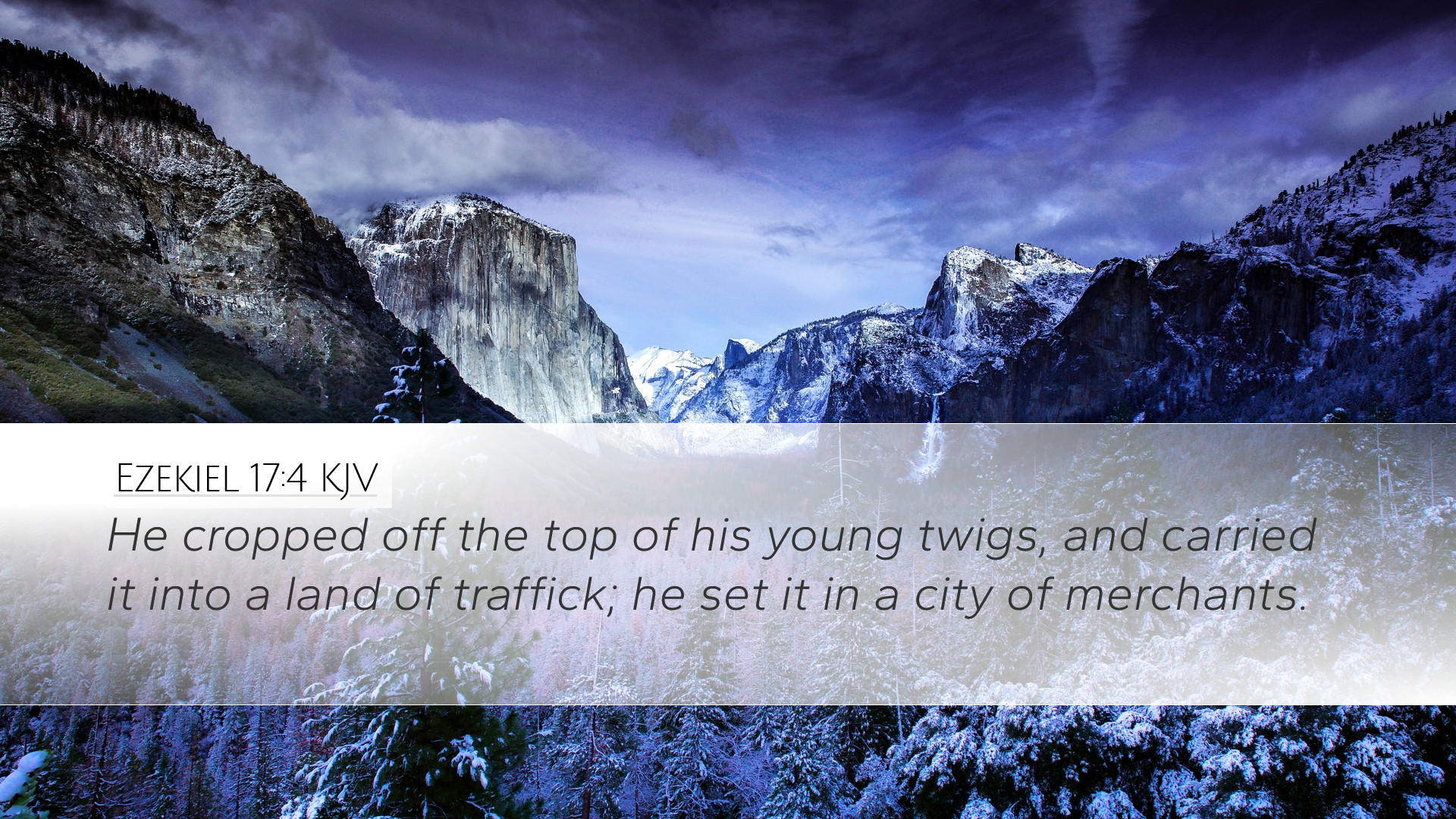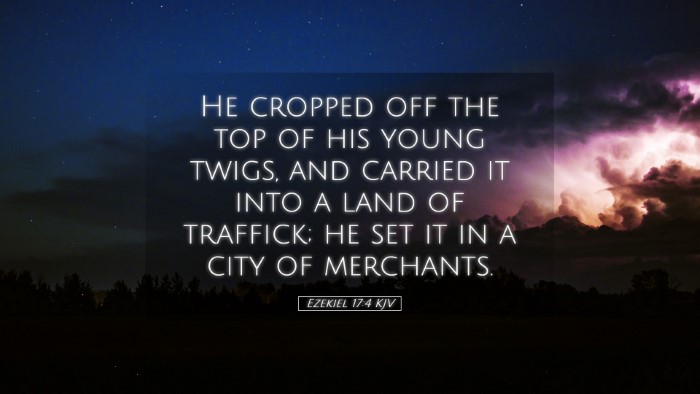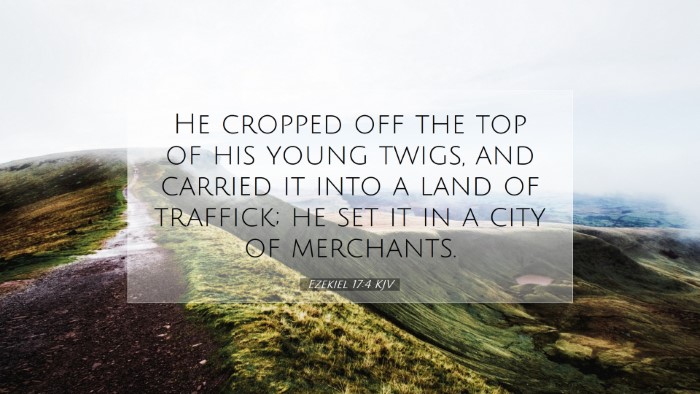Commentary on Ezekiel 17:4
Introduction
Ezekiel 17:4 reads, “He took of the seed of the land, and planted it in a city of merchants: he took the lowest branch of the high cedar, and planted it in a fruitful field; it became a vine, and brought forth branches, and shot forth sprigs.” This verse is rich in metaphor and invites deep exploration into its implications regarding God's sovereignty, Israel’s experiences, and broader theological themes concerning growth and divine purpose.
Historical and Contextual Background
The book of Ezekiel, authored by the prophet himself during the Babylonian Exile, often employs vivid imagery and allegories to communicate God’s messages to His people. Ezekiel 17 is a parable that portrays God’s dealings with both the nation of Israel and its leaders, particularly focusing on the context of the exile, restoration, and the establishment of God’s kingdom.
Verse Analysis
Symbolism of the Planting
In this parable, the act of “taking of the seed of the land” symbolizes the exile, where a remnant of Israel was taken from their own fertile ground. The “city of merchants” can be understood to represent Babylon, a place of trade and conspicuous abundance, yet spiritually barren for God’s people.
The Cedar and the Vine
The “lowest branch of the high cedar” reflects the notion of humility and divine selection. The cedar, a symbol of strength and majesty, represents the Davidic line from which the Messiah would come, contrasting with the vine, which suggests dependency and fruitfulness. Here, the prophet illustrates how God can take a remnant, seemingly insignificant, and cause it to flourish in a new and perhaps unexpected place.
Insights from Commentaries
- Matthew Henry: Henry discusses the broader implications of this symbolism, noting that God nurtures His chosen people even in foreign lands, symbolizing hope amidst despair. He reflects on how the vine being planted indicates God's intention to restore Israel despite their dire circumstances.
- Albert Barnes: Barnes emphasizes the profound wisdom of God's providence in his analysis. He notes that while the vine suggests vulnerability, it also shows a capacity for renewal and growth, stressing the significance of divine sovereignty during Israel’s trials.
- Adam Clarke: Clarke elaborates on the vine's characteristics, noting its capacity to produce abundant fruit when rooted correctly. He underscores the notion that while circumstances may appear barren, divine planting results in rich blessings, aligning with the theme of hope in adversity.
Theological Themes
God's Sovereignty Over Nations
These insightful commentaries point to a central theme: God’s sovereignty in the affairs of nations and the redemption narrative for Israel. Even in exile, God is actively working to bring about restoration. This verse assures its readers, including contemporary believers, of God's overarching plans that transcend human failings.
Hope and Restoration
Both Henry and Barnes highlight the transforming power of God, emphasizing that appearances can be deceiving. The initial removal of the seed might imply bleak prospects, yet through divine intervention, growth occurs. This theme serves as a profound reminder to those in ministry that hope is always alive in God's purpose.
Application for Today
For pastors, students, theologians, and scholars engaging with this text, Ezekiel 17:4 encourages reflection on the nature of God's planting in our lives. In times of exile—whether spiritual, emotional, or physical—one can hold onto the truth that God is still working a work of fruitfulness. It invites believers to recognize their own potential to be vessels for God’s renewing work, regardless of their current circumstances.
Conclusion
In sum, Ezekiel 17:4 stands as a powerful reminder of God's capacity to work through the seemingly insignificant to produce abundant life. The insights gleaned from the public domain commentaries of Matthew Henry, Albert Barnes, and Adam Clarke present a timeless message of hope, restoration, and divine sovereignty that resonates beyond its original context, providing encouragement for all who face their own seasons of uncertainty.


